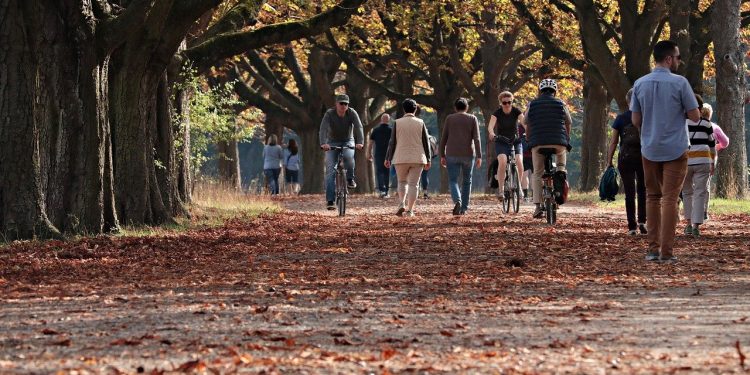Our parents and grandparents have always told us stories about when they were in school, and one detail that stands out is how they walked all the way there every day. Since walking was the only form of transportation at the time; the world as we know it today didn’t exist – bicycles, buses, airlines, automobiles, trains, and other forms of transportation that we see today were only a distant dream. Evolution, on the other hand, is a natural process, and the environment has adapted to the advancement of technology without understanding that we have become heavily reliant on it.
Even if the destination is just a 10-minute walk away, people nowadays prefer to take Ubers and drive. Technology has definitely made us ignore physical activity, and that has sadly led to seniors – who used to walk for hours just to get to school – dismissing the strength of walking at a time when they most need it. Numerous studies have shown that walking is the most effective type of exercise and that it should be promoted among seniors as a significant aspect of elderly care.
Walking is easy, inexpensive, and requires no special equipment. It can be done indoors or outdoors, alone or in a group, and the best part is that it can fulfil the role and need for regular physical activity in a person’s life, especially for seniors. As a result, to help you understand how beneficial walking is for the elderly, we’ve compiled a list of its benefits below. Let’s take a look!
- Boosts Heart Health
Heart disease is one of the leading causes of death for seniors around the world, and one of the most significant benefits of walking for older people is improved heart health. Many studies and researches have been conducted over the years that have linked regular walking to improved cardiovascular health. Walking has been shown to minimise the chances of high blood pressure, high cholesterol, diabetes, heart disease, stroke, and cardiac arrest by 15-20% when done on a daily basis.
- Beneficial to the Muscles and Bones
Walking is assumed to have a negative impact on bone health, but this is not the case. Walking is a low-impact exercise that will not cause harm. It can help avoid certain types of arthritis as well as relieve the discomfort associated with it. Walking is important for maintaining healthy joints and muscle strength, as well as strengthening bones and reducing osteoporosis symptoms. People who are over the age of 65 are less likely to become disabled than those who are not.
- Enhances the Immune System
Our immune systems deteriorate as we get older, rendering us more susceptible to infectious diseases. Walking also helps to improve the immune systems of people who are getting older. You would be protected from diseases and other problems that could slow you down if you walk. Numerous studies have shown that people who walk every day get sick less often and for shorter periods of time than those who do not.
- Helps with Balance
Our sense of equilibrium gradually deteriorates as we get older. When older adults with impaired balance also have other medical issues, such as vision problems, vitamin D deficiency, or are taking drugs or supplements that interfere with balance, it is particularly concerning for family caregivers. When an elderly person falls, severe injuries such as a head injury, sprain, or even a hip fracture are still a possibility. An exercise regimen that includes aerobic exercise (such as walking), as well as strength training, is important for improving your senior loved ones’ balance. However, before committing to a routine, speak with a doctor and a trained teacher.
- Enhances the Mood
Endorphins, which are hormones that improve a person’s mood, have been shown to be released by walking. Walking outside is particularly helpful because it has been shown to improve mental health by lowering stress levels. So, whether the weather isn’t cooperating, try to persuade your elderly loved ones to go for a walk in the woods.
Caregivers should encourage and inspire their Elderly ones to go for walks more frequently, keeping these five benefits in mind. Experts say that even 20 minutes of regular walking will help seniors reduce their health risks significantly. Walking as a daily physical activity has received a lot of attention as part of the larger conversation about elderly care.



